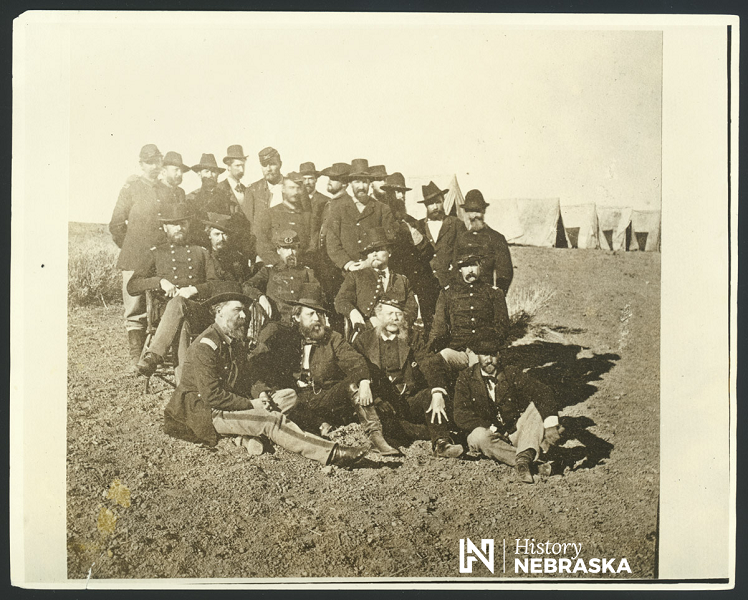
Governmental bureaucracy is nothing new. Almost a hundred years ago, Nebraska veterans discovered missing records and “red tape” when they applied for military pensions. The Nebraska State Journal reported:
Are Nebraska militiamen who were ordered by the territorial governor to repeal an attack of Indians during the year of 1865 entitled to pensions? This question has been raised by Icullius Johnson who has applied to Adjutant General Barry for a record of service on which to base his claim for a pension.
The case seems to hinge on the question of whether or not Johnson was ever in the service of the United States. He was a member of Company B, First Regiment, Second Brigade, Nebraska National Guard when the guard was ordered out to repel attacks of Indians. After serving about six months he was mustered out February 13, 1865. It is admitted that the militia did good service in that campaign, as two engagements occurred and several were killed, but there were doubts as to whether persons who were members of the guard are entitled to pensions by reason of service under the government.
Because the guard was ordered out by a territorial governor, who may be considered a representative of the general government, it is claimed that such soldiers were actually in the service of the government. Adjutant Barry does not recall that any of the guard who took part in the suppressing of the Indian outbreak have ever applied for pensions. He thinks Johnson’s case is the first of the kind and on its settlement by pension officers a may hinge a great many other cases.
Soldiers who enlisted in Nebraska regiments during the war are beginning to look up their records for one purpose or another. Many desire to apply for pensions and they write for certificates of service. The military records were in no one’s particular charge in the 60’s and it is often difficult to find the desired information. Recently a lady living in Pennsylvania wrote for her husband’s record and she forwarded his commission as an officer, yet General Barry was unable to find any record of the man’s name or issuance of his commission.



